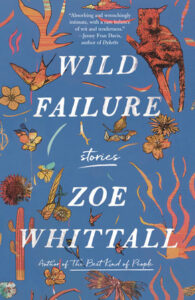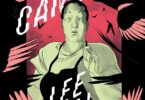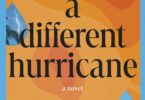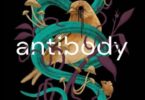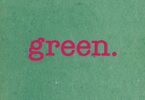Zoe Whittall, Wild Failure (HarperCollins Canada, 2024), 176 pp., $18.00.
Through three books of poetry and six novels, Zoe Whittall’s been a wry, fearless chronicler of urban contemporary times, often through the lens of queer culture. In May, Whittall published her tenth book and her first book of short fiction: Wild Failure. (A few weeks ago, her fourth volume of poetry, No Credit River [Book*hug Press], was also released.) With a poet’s polish and a novelist’s mastery of narrative motion, Whittall’s collection of ten stories is an entertaining, emotionally charged read.
The book explores the deep desire for human connection be it through love, sex, adventure, conversation, flirtation, lust, friendship. And also the bittersweet twists of life—navigated through hope and discomfort—that challenge these connections.
A quarter of the way into the book a character states: “When I meet people who express sorrow, anger, and explain what they need but don’t get—these are people I want to be around, as though I can wordlessly learn to feel and express feelings by being around their leaking faces, their longing.” For anyone who recognizes this yearning, Wild Failure does not disappoint. Whittall steers us into the interior lives of an array of disarmingly believable, offbeat, and emotionally complex characters, and she commands this experience with empathy and compassion.
Plot lines are not what push these stories forward. That’s why when we’re told that someone is going to try to kill the main character, or a protagonist is about to almost lose her life, or that someone does not yet realize she is pregnant, it doesn’t flatten the story. What keeps us riveted is the intense trajectory of the characters’ emotional lives captured in crisp prose, unflinching honesty, and sharp dialogue.
There is a liveliness to the writing. A speed and rhythm that warns you to hold on tight, turbulence up ahead. Take these lines near the opening of “Half-Pipe,” told in the first-person voice of 15-year-old Morgan with pure precision and no background noise:
Hair up or down? I ask. A first-drink question.
Sandy says up. She’s still peeing. Strong stream, no hesitation. Twist it. No, not like that. She pulls her miniskirt down, kicks the flusher. Sandy knows how to be a girl.
Morgan is happy to hang out with her seemingly more worldly friend Sandy and accepts being a second-string friend. There are nights of drunkenness and blackouts. After a video of Morgan being fucked by a guy while barely conscious is shared online, she reacts with a detached rage at the harsh judgement directed at her.
Whenever a girl gives me side-eye, I think about saying: You have a pussy. So do I. Get over it.
No one says anything about Tyler’s cock, his high-five with Sketch, slits for eyes, exuberant grin.
In “I Need a Miracle,” 18-year-old Susan, aka Stella Blue, takes off with her boyfriend Matty and three other Deadheads to follow the band on tour. Stella gets pregnant and while tripping decides to keep the baby. In a drug-addled moment Matty kicks her twice in the stomach and she miscarries. When Morgan’s mother comes to pick her up, she contemplates telling her what happened but says only that she became homesick and got a little too high.
We feel clearly the limits of relying on another to assuage our pain. It echoes Morgan’s reaction in “Half-Pipe” when her uncle asks what’s wrong. She declines to share, explaining: “It never really helps to do that anyway. People will always tell you it does, but it doesn’t. It makes the person listening feel good that they listened.”
Many pivotal scenes in Wild Failure are two-person interactions and lay bare a troubling disappointment.
“You had sex with me because you are too weak,” Eleanor says to Jim in “Oh El.” Controlling and domineering, Eleanor continues with “and then you had to break up with Jennifer because you are too honest. And then you got stuck with me.”
“I love you, but not in the right way,” Jamie says to the narrator in “More Holy.” The narrator counters with “They often want me, in a physical way, but I want them in an emotional way that is unyielding. Sometimes when they’re fucking me, I think that I could probably be anyone and in that moment they wouldn’t care.”
Teprine, an agoraphobic, is struggling to be a fun girl, or at minimum easygoing. “I love you, but something is missing,” Jasper says to her in “Wild Failure” during a road trip to Joshua Tree National Park.
In “This is Carrie’s Whole Life,” Carrie is obsessed with the thought that she will one day be alone with a stranger. What’s more, she’s sure this stranger is going to kill her. She also suffers from low ambition and an inability to react to events in her life. So much so, she’s unable to realize she’s having a nervous breakdown until it’s too late. “For all the ways she could imagine dying at the hands of others, Carrie truly never considers that her own spirit could be the aggressor, the most heartless adversary.”
Both Teprine’s and Carrie’s stories reflect our current obsession with defining and labelling and analyzing our mental health. Teprine admits to being jealous of people who don’t even try to take road trips. People “who frame their mental health issues as disability issues that should be accommodated in a just society.” Carrie’s inability to see herself as her own worst enemy is “a thought she would have considered symbolic of her victim-loving generation.”
Short fiction likes compression and excels when every sentence counts. On this Whittall delivers. Take the van that smells like “boys, neglect, a belief that deodorant was a tool of the Man.” Or the carpets in Super 8 motels “that felt like Rice Krispies squares…” Or the realization that: “There are so few people I get attached to that, when I do, it feels like they’re murdering me if they leave.”
For those who like music references there’s no shortage, from Iggy Pop to Def Leppard, Mudhoney to Bon Iver. They perform a kind of shorthand. A Jewel CD begins to play and immediately tells us we’re in the mom’s car. The sound of Broken Social Scene’s You Forgot It in People sets us right in the heart of the summer of 2003. When Stella’s mother corrects her and says that “Maggie’s Farm” is not a Rod Stewart song, he just covered it, I immediately wanted to jump in and argue with them.
Wild Failure invites this kind of engagement. When I finished the book, I briefly wondered if the documentary filmmaker in one story is the stripper in another who becomes a filmmaker. And when a bartender doesn’t show up in one story, I wondered if it was Carrie from “This is Carrie’s Whole Life.” Not that it matters. But it’s a testament to the book that you experience ten different worlds and the feeling you are left with is one big collective celebration of raw vulnerability and occasional victory.
For the characters there is a lot of wild failure in this book. But also humour, strength, and singularity. Whittall gives us a passionate look at young female lives, their sexuality, queerness, and independence. Her protagonists are often humiliated, enraged, or hurt, but they are also reliably tough women with rich interior lives and an unapologetic knowingness.
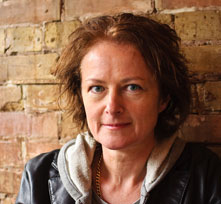 Anne Perdue’s collection of short fiction I’m A Registered Nurse, Not a Whore, was long listed for the Frank O’Connor International Short Story Award and shortlisted for the Relit Award. She works as a Senior Editor for the Metcalf Foundation and currently lives in Vancouver.
Anne Perdue’s collection of short fiction I’m A Registered Nurse, Not a Whore, was long listed for the Frank O’Connor International Short Story Award and shortlisted for the Relit Award. She works as a Senior Editor for the Metcalf Foundation and currently lives in Vancouver.

